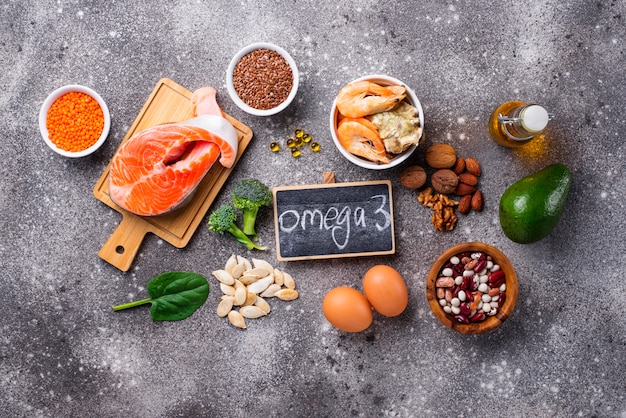Benefits
Biotin is a B-complex vitamin that every cell in the body needs. These B vitamins help your body convert food into energy. Also known as vitamin H, coenzyme R, and vitamin B7, biotin aids in metabolizing fats, proteins, and carbohydrates. It’s essential for normal growth and development, particularly for healthy embryonic growth. Additionally, biotin supports the health of your hair, skin, and nails.
Biotin is water-soluble, meaning it dissolves in water and is not stored in the body. Unused amounts are quickly excreted in urine, so regular replenishment is necessary. Because of this, water-soluble vitamins like biotin generally do not accumulate to toxic levels.
There are two main sources of biotin for the human body: diet and bacteria. The beneficial bacteria in your gut can actually synthesize biotin.
Biotin Health Benefits
Biotin Assists Metabolic Processes
Biotin acts as a cofactor for several carboxylase enzymes involved in carbon dioxide transfer. Simply put, it helps your cells metabolize fatty acids and amino acids and assists in forming glucose from noncarbohydrate sources. This makes biotin crucial for maintaining a balanced metabolism.
Biotin Supports Healthy Hair, Skin, and Nails
Biotin is vital for healthy hair, nails, and skin. A study involving women with thinning hair found that biotin supplements significantly increased hair count, volume, coverage, and thickness compared to a placebo group. Another study showed that biotin could help thicken and strengthen brittle fingernails.
Biotin deficiency can cause rashes and skin lesions. Supplementation has been shown to remedy skin issues caused by biotin deficiency. For example, dogs with fur and skin conditions showed significant improvement after receiving oral biotin supplements.
Biotin May Improve Glucose Levels
Biotin plays a crucial role in carbohydrate metabolism. Studies suggest that biotin, alone or combined with chromium, helps maintain normal blood sugar levels. Both animal and human studies indicate that adequate biotin supplementation may support healthy blood sugar levels, although more research is needed to confirm this effect.
Biotin and Pregnancy
Pregnant women need to ensure they get enough biotin. Animal studies have shown that biotin deficiency can cause birth defects. Since biotin doesn’t easily pass to the fetus, a deficiency in the mother can lead to a severe deficiency in the fetus, potentially causing developmental issues, especially in the skeletal system. Some studies suggest that pregnant or breastfeeding women may need more biotin than current estimates recommend.
Biotin Deficiency
Biotin deficiency is rare but serious. Symptoms include dry skin, dry eyes, hair loss, mouth cracks, tongue inflammation, loss of appetite, fatigue, insomnia, and depression. Common causes include certain medications and conditions that hinder nutrient absorption. Biotinidase deficiency, a genetic disorder, prevents the body from recycling biotin properly, leading to severe symptoms like seizures, muscle tone reduction, breathing issues, balance problems, deafness, blindness, and candida infection. It can also cause developmental issues in children. Alcoholics and people with inflammatory bowel disease are also at risk.
Those with biotin deficiency should avoid egg whites, which contain avidin, a protein that binds to biotin and reduces its absorption. This condition, known as egg white injury, can cause eczema. Ironically, egg yolks are an excellent source of biotin.
Fortunately, biotin deficiency symptoms are easily remedied by increasing biotin intake.
5 Vegan Foods Rich in Biotin
The best way to ensure you get enough biotin is to eat biotin-rich foods. While animal sources like pork, organ meat, egg yolk, and milk are rich in biotin, vegan options include yeast, legumes, avocados, nuts, and chocolate.
Vegan Food Sources of Biotin
| Food | Serving Size | Biotin (micrograms) |
|---|---|---|
| Yeast | 1 packet (7 grams) | 1.4 – 4 |
| Bread, whole wheat | 1 slice | .02 – 6 |
| Avocado | 1 whole | 2 – 6 |
| Raspberries | 1 cup | .2 – 2 |
| Cauliflower, raw | 1 cup | .2 – 2 |
Daily Intake Recommendation
Biotin hasn’t been as extensively studied as other vitamins, so there’s no official Recommended Dietary Allowance. Various recommended intakes exist, but there’s no consensus. The U.S. National Library of Medicine suggests around 30 micrograms (mcg) daily for adults, while the National Institutes of Health recommends closer to 300 mcg.
I recommend aiming for the higher end of this range. As a water-soluble vitamin, excess biotin is quickly excreted. The lower figures only indicate adequate intake, not optimal levels. The optimal amount of biotin may vary based on age, gender, and health. It’s better to be safe than sorry; too little biotin can harm your health, but too much will just pass through your system harmlessly. Use the following table as a guideline for daily biotin intake.
| Life Stage | Adequate Intake (AI) for Biotin, Daily |
|---|---|
| Infants | 50 mcg |
| Children under 4 | 150 mcg |
| Adults and Children Over 4 | 300 mcg |
| Pregnant and Lactating Women | 300 mcg |
Remember, these figures represent adequate intake, not optimal levels. The optimal amount of biotin may vary based on age, gender, and health.
Biotin Side Effects and Considerations
Biotin is non-toxic but may interact with certain medications metabolized by the liver. Always consult a healthcare professional before starting any new supplement and follow the directions provided.
Biotin Supplements
While food is the best source of nutrients, supplementation may be necessary if your diet lacks consistent, complete nutrition. Biotin supplements are available alone, combined with other B-complex vitamins, or in a general multivitamin. Choose a high-quality product, preferably one that provides plant-sourced nutrients instead of synthetic ones. I recommend d-biotin, the only form of active, naturally-occurring biotin.
Global Healing recently introduced a new biotin supplement that is plant-based, natural, and vegan. We’ve received great feedback. If you’re not getting enough biotin from your diet, consult your healthcare practitioner to see if a biotin supplement is right for you. Together, you can develop a strategy based on your individual needs and situation.



